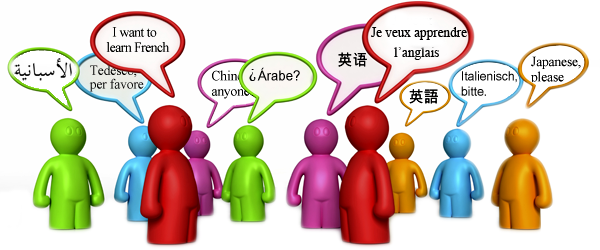The Mixxer, a Web application developed at Dickinson College by language technologist Todd Bryant, is a free educational resource allowing language learners around the world to schedule Skype sessions to fit their schedules, and helping Dickinson’s language departments harness technology to provide students regular conversations with native speakers. Having grown over the years to include 100,000+ international participants, The Mixxer enables Dickinson’s faculty to provide students the kind of experience that was once impossible in the classroom.
Last year, The Mixxer offered a MOOC to English speakers learning Spanish and paired the participants with a partner course of Spanish speakers learning English. Using open educational resources from COERLL, Colby College, Voice for America and the BBC among others, the language learners were introduced to new vocabulary and grammar points through texts and audio and then given activities to complete with their language partner from the other course. If you have ever taught or taken a language course, you can think of the language exchange as a replacement for the partner activities done most every day in class.
[youtube_sc url=”https://www.youtube.com/watch?v=0CT0Sk1rPto” title=”Explanation%20of%20The%20Mixxer%20(1:57%20minutes)” modestbranding=”1″ autohide=”1″]
Explanation of The Mixxer (1:57 minutes)
With support from the Mellon Digital Humanities Fund, The Mixxer was able to build on its successes this summer, hiring three Dickinson education and language students to create free, online courses in German, French, and Chinese. The lessons are structured in much the same way as a traditional language class, with learners first being introduced to new content, given examples, asked to practice, and then finishing with some form of written assessment.
The German and French lessons, created by Ezra Sassaman and Caitlin DeFazio, respectively, assume some knowledge of the language – roughly one semester. The lessons in Chinese, created by Betsy Vuchinich, have been designed for beginning learners of the language, and use content primarily from the Confucius Institute and the University of North Carolina, Chapel Hill. All three courses are complete, free to use, and currently available on The Mixxer site.
Additionally, Bryant and his team were able to hire a computer science major, Santiago Princ, to help with technical additions to The Mixxer. By using jQuery, Princ helped Bryant write a module that allows native speakers to quickly view, edit, and resubmit corrections to their partner’s written work. The language learner can then reply to the native speaker with further questions.
The module that Princ helped create extends the open-source Drupal platform, and has been published on Drupal.org along with an acknowledgement to Princ. It is viewable here.
Benefits to Students
Sassaman, DeFazio, and Vuchinich received training from Dickinson College associate professors Sarah Bair (Education) and Sarah McGaughey (German) on the basics of language pedagogy and the structure of language lessons. They then learned how to apply these principles to an online learning environment. They were also required to participate in the language exchanges themselves to gain an understanding of the lessons work in practice from a language learner’s perspective. The lessons are published under their name to which they will be able to refer if they decide to pursue a career or further education in language pedagogy.
By working with Bryant to create the module, Princ gained a solid and fundamental understanding of jQuery, a very common web developing language. More importantly, he now has experience working with open-source software along with the process of using community resources to diagnose and solve errors.
Bryant and Vuchinich also had the opportunity to showcase these resources at the CALICO / IALLT conference in Athens, Ohio (May 6 – 10), where they received praise from educators. Of particular interest was the news that they would use these lessons as part of three MOOCs to be offered on The Mixxer site (starting July 1, 2014). As before, learners from each course are able to connect with partners via Skype to complete the language exchange activities provided within each lesson.
For more information on The Mixxer, or foreign language learning with technology in general, you can contact Bryant by email here.

 A website called “Evolllution” (Illuminating the Life Long Learning Movement) has published a fine
A website called “Evolllution” (Illuminating the Life Long Learning Movement) has published a fine